I’ve never been good at making predictions about the game industry, but I enjoy it. I figure if I make enough, some of them will come true. So my guesses for the next year have become an annual rite of December for me.
One of the easiest predictions to make is that gaming will continue to grow on all fronts. Market researcher Newzoo estimates that industry will grow its annual revenues to $148.8 billion in 2019, up 7.2% from 2018. By 2022, Newzoo estimates the market will be $189.6 billion. (Nielsen’s SuperData predicts games will grow 4% in 2020 to $124.8 billion).
That’s why we’re seeing gaming dwarf other entertainment media, as gamers who grew up playing games are a bigger part of the older population, and millennials are all-in on games and esports.
I enjoy talking to the seers, and we put many of them on stage at our events, such as the upcoming GamesBeat Summit 2020 in Los Angeles in April. But once a year, I think it is good to go out on a limb myself.
June 5th: The AI Audit in NYC
Join us next week in NYC to engage with top executive leaders, delving into strategies for auditing AI models to ensure fairness, optimal performance, and ethical compliance across diverse organizations. Secure your attendance for this exclusive invite-only event.
First, I’ll give myself grades for last year’s predictions, and then I’ll make 13 new ones. For the usual comparison and embarrassment, here are my predictions for 2018, 2017, 2016, 2015, 2014, 2013, and 2012. At the bottom of the story, I’ve also given myself grades for the predictions I gave last year for 2019.
Here are my predictions for 2020:
1) The Last of Us: Part II will be my favorite game of 2020
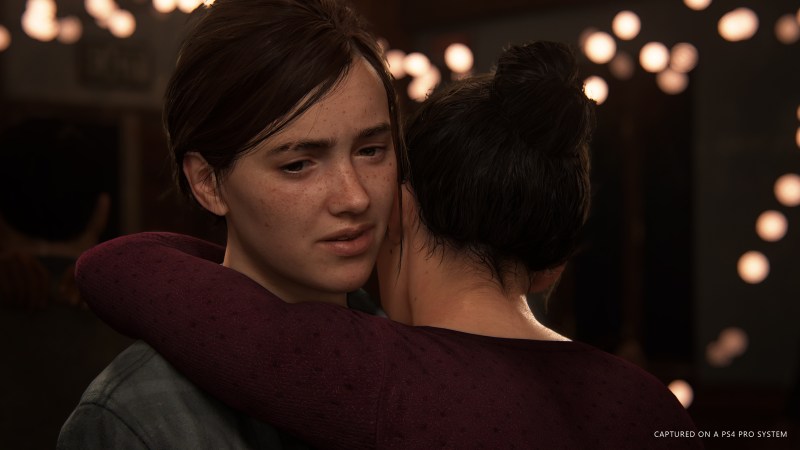
Above: A kiss at a dance in The Last of Us Part II
It’s not about the zombies, or in this case, the Clickers or the Infected. It’s about the characters and the relationships between them. The original is my favorite game of all time, so I’m less than objective when it comes to judging the sequel. But I’ve played part of the new game, and I am impressed at its improvements. This is up to Naughty Dog to deliver, but it is on track to be a more ambitious title than the last one, after seven years in the making.
What made The Last of Us great is the relationship between Joel and Ellie, who are forced by circumstances to survive together in a dangerous world. Joel had tragedy in his life and shut himself down to human contact, making him one of the most dangerous killers in the postapocalyptic world. But he opened up to Ellie, and she pulled the humanity out of him. The acting was so good. The bookend echoes of the beginning of the game and the end of the game made it memorable.
By the time of the second game, Ellie has become the expert killer, protecting a thin layer of humanity from the zombies and the evil humans. Joel is still there, as more of a father-like figure for Ellie, who has love in her relationship with Dina. But somewhere, something goes wrong, and the whole plot revolves around revenge. No one does a better job of making a game look so real and feel so real when it comes to narrative and emotion. 2020 is Naughty Dog’s year, and it only needs to deliver. And will I give other games the chance to beat out The Last of Us Part II? Yes, of course.
2) Sony’s PlayStation 5 will be a smashing success

Above: PlayStation 5 is coming holiday 2020.
I don’t yet know what big titles will make or break the PlayStation 5, which is coming in the holidays of 2020. But I’ve got enough confidence in Sony, even with its big management changes, to trust that it’s going to pull off a good launch. We’ve seen leaks that suggest it’s going to be a lot more powerful than the existing PlayStation 4 Pro, based on Sony’s technical decisions. And I like the fact that the SSD drive will make cutscenes run faster, rather than forcing us to endure long loading screens.
Sony still has some of the best first-party studios in the world, such as newly acquired Insomniac Games and stalwarts like Naughty Dog, Guerrilla Games, Japan Studio, London Studio, Santa Monica Studio, Media Molecule, and Sucker Punch. Those studios are dedicated to outstanding narrative games that will be exclusive to Sony’s PlayStation 5, as needed. Sony also has one of the smartest architects in Mark Cerny, who understands both the hardware and what the games demand of it.
Every now and then, Sony has had mixed results because it priced its console too high (PS3) or forced hardware upon it (Blu-ray and Cell processor) that folks didn’t need, but I don’t foresee such wrong-headed behavior continuing with the PS5. Sony’s reasonable decisions helped it win with the PlayStation 4 generation. Some folks expect that Sony will say something about this as early as CES 2020, next week.
I think that both the Sony and Microsoft consoles could sell more in 2020 than they did during their previous launch year of 2013.
3) The Xbox Series X will also be a big success
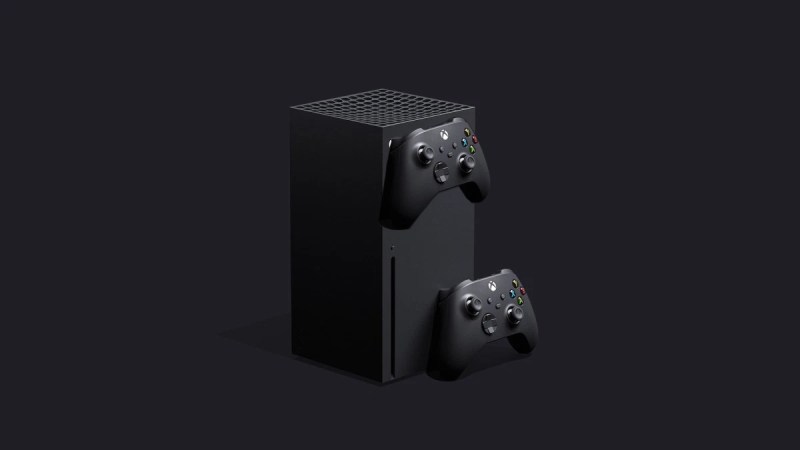
Above: Xbox Series X width.
Microsoft has had ups-and-downs with each console generation. The original Xbox’s hardware was too expensive, leading to $4 billion in losses despite 20 million consoles sold. The Xbox 360 was an excellent machine, plagued by the Red Rings of Death. The Xbox One was well-designed but burdened with the expensive Kinect camera and an unwanted entertainment/media focus.
That history doesn’t really bode well for the next machine, the Xbox Series X. But I have to say that the management under Phil Spencer has recently been running pretty smoothly and — perhaps crucial — has been very authentic when it comes to gamer cred.
It’s a big machine, but it’s pretty much a PC. It will have an AMD-designed processor/graphics combo, close to the same as Sony’s but perhaps less powerful. But Microsoft has learned some important lessons. It has a good service in the combination of the Xbox Live and GamePass subscription service, and it has gone on an acquisition binge. That means it has finally learned that it takes first-party studios to win console generations.
Microsoft now has a lot of studios to go up against Sony’s first-party teams. The big studios include 343 Industries, The Coalition, Playground Games, Turn 10 Studios, Rare, Mojang, InXile, Obsidian Entertainment, Double Fine, and various others. And Ninja Theory looks like it will produce an excellent title, Senua’s Saga: Hellblade II, for the Xbox Series X. This means Microsoft can take its time with each title and make sure they’re primed for the Xbox One X. And the company isn’t distracted with virtual reality, which could produce headwinds for Sony if VR doesn’t take off in this generation.
4) Fry’s Electronics will shut down, and so will many video game stores

Above: Bare shelves at Fry’s Electronics in Campbell, California.
Fry’s Electronics is the kind of big box retail store that should have survived and won. But, as numerous reports about bare shelves at all stores show, the big electronics chain looks like it is on its last legs, another victim of Amazon and digital delivery of games and software. GameStop, the game-focused retailer, is also shutting hundreds of stores around the world. Gamers appear to have spoken, and they now have a lot of choices for online stores, such as Amazon, Steam, and the Epic Games Store. When you’re selling 1s and 0s, there’s really no need for a retail presence. Fry’s claims it isn’t shutting down, but why would the company have no inventory during the holiday season at many of its stores?
5) Nintendo may reveal new hardware, but won’t ship it in 2020
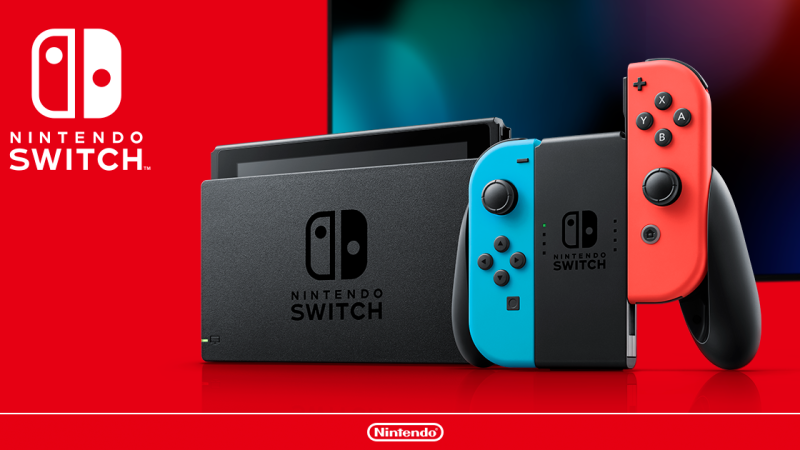
Above: The new Nintendo Switch model from August 2019.
Nintendo launched its successful console-handheld hybrid Switch console in March 2017, replacing its failed Wii-U machine in the middle of its cycle. The switch is a smash hit, with more than 34 million consoles sold and 187 million copies of software. It isn’t running out of steam anytime soon, and so Nintendo does not need to launch a new console in 2020, as Microsoft and Sony are. Sony and Microsoft launched their big consoles in 2013, and they did midlife kickers.
But the Switch is targeting a different market, including Nintendo fans who want to play games on the go. Still, the PlayStation 5 and the Xbox Series X could steal a lot of customers when they launch at the end of 2020. So it might be good for Nintendo to start talking about its next machine while Sony and Microsoft shift their new ones. That might stop Nintendo players from defecting. So this could mean that Nintendo might announce a new system in 2020 (risking a few lost sales) and ship it sometime in 2022.
This rumor about launch timing is speculation on my part, and not based on any inside tip. The Wall Street Journal, meanwhile, reported that Nintendo was working on the Switch 2 and had not yet decided when it would announce it. I don’t think Nintendo or the Switch have much to worry about from Sony and Microsoft. After all, Nintendo has Miyamoto, Mario, and so many other secret weapons to use in the console wars.
6) Amazon, Facebook, and Microsoft will join Google in launching cloud gaming services
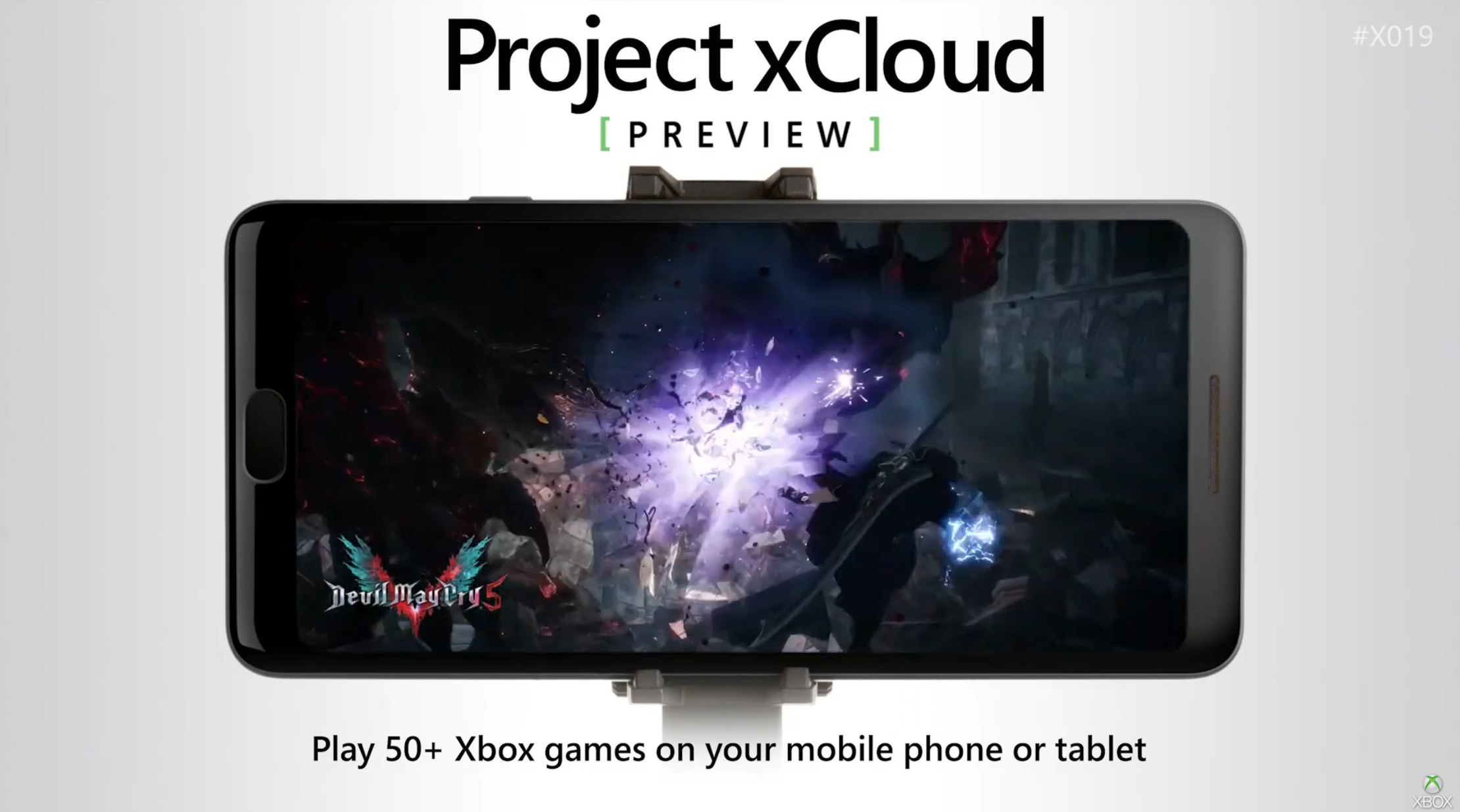
Above: Project xCloud is Microsoft’s approach to cloud gaming.
Startups like Blade and its Shadow service have moved into the cloud gaming market in hopes of overcoming the ghost of OnLive. But Google eased its way into cloud gaming with the go-slow launch of Stadia in November. The company will beef up the service in 2020, and it will have to do a lot more to get fans excited about cloud gaming before the next set of game consoles arrives in the holiday of 2020.
Google will get some company in 2020 with new cloud game services from Microsoft in the form of Project xCloud, and I expect Amazon won’t be that far behind either. Cloud gaming is going to have a slow launch, but I believe it is here to stay. As for Facebook, last week it confirmed the acquisition of cloud gaming startup PlayGiga in Spain.
7) Big companies and VCs will continue to invest in game companies
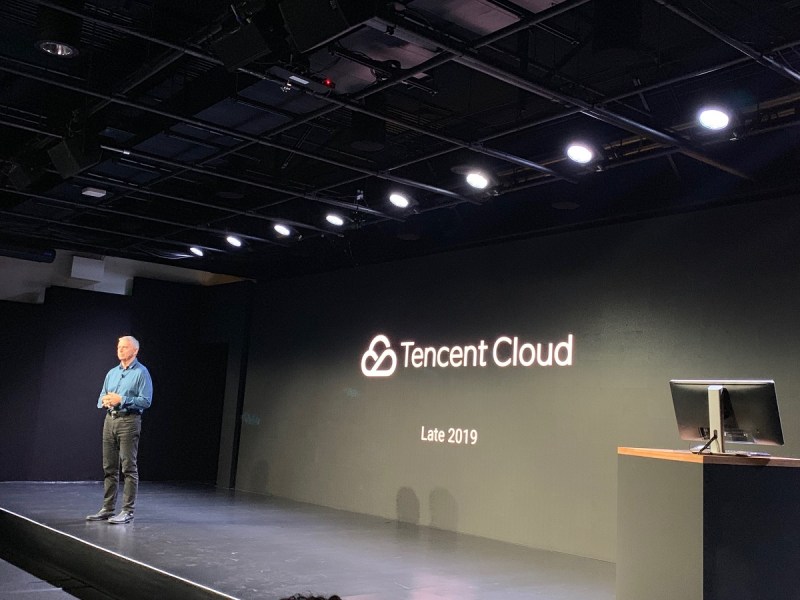
Above: Tencent Cloud is on the horizon.
I was worried when I heard earlier this year that AT&T might put Warner Bros. Interactive Entertainment up for sale just to pay down debt. But I’ve since heard that this idea is off the table, and that’s a good thing in my view. WBIE is one of the treasures of the game industry, and it is the most successful example of a Hollywood studio exploiting both movies and games.
But there will be plenty of other buying and selling and investing going on in games in 2020. You can expect that Disney will sell the FoxNext Studios, as its focus is on licensing games rather than building them. There are also other transactions in the works that I know about. And why not? Games are the biggest form of entertainment, but game companies aren’t always valued in recognition of that fact.
Tencent continues to invest in games, and other Chinese companies like NetEase are doing the same. There are more than 20 game-focused venture capital funds, all the way from seed investments to larger investments. That’s more game-focused VCs than ever before. And I haven’t even mentioned esports companies yet. My prediction is that you can continue to expect to see an investment in the smallest game companies and acquisitions of the biggest game companies as well.
And what sort of prices would people pay? They could buy Take-Two Interactive (owner of the Grand Theft Auto, Red Dead Redemption, BioShock, NBA 2K, and Civilization franchises) for $13 billion. Or they could buy one aircraft carrier with that money.
8) Esports companies will continue to soar in viewers, valuations, and acquisitions — but not profits
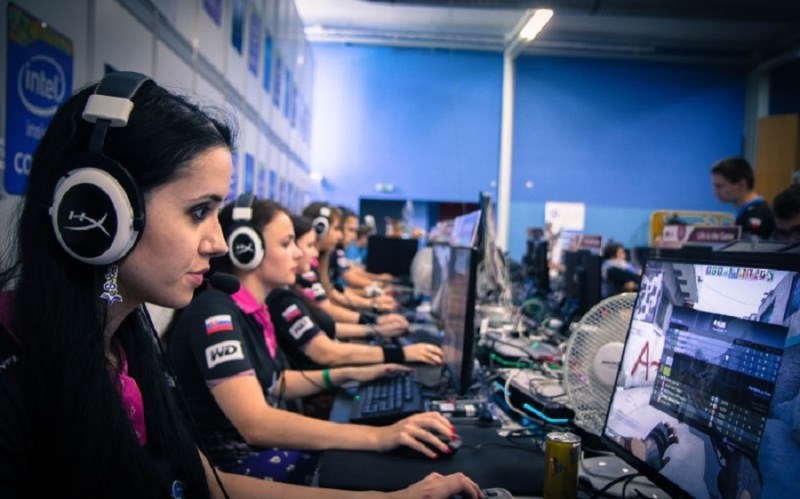
Above: Women are changing esports and broadening its appeal.
Riot Games has had an amazing 10-year run with League of Legends, but the company acknowledges that the esports investment that it has put into LoL isn’t yet profitable. That is a surprise to me, given that it has millions of players. And if Riot Games isn’t profitable yet with its esports efforts, then how can anyone else in this business hope to be profitable?
I think it will come. And I know that many investors, such as traditional sports team owners, are betting heavily that esports will become as big as the NBA (the second-biggest pro sports league in the U.S.) someday. Esports has all the advantages. It is transforming society, as nerds now have a chance to become socially accepted by playing video games skillfully and getting rewarded for it. Millennials are more easily found by brands via esports. And brands such as AT&T and Anheuser-Busch are diving into esports sponsorships.
Eventually, media rights revenues should flow all the way down to the teams, making the big investments in esports organizations into money makers. We are definitely in a period of overhype now, and it could all come crashing down. But there are plenty of good reasons for that hype.
9) VR will have its biggest games yet, but will continue to struggle
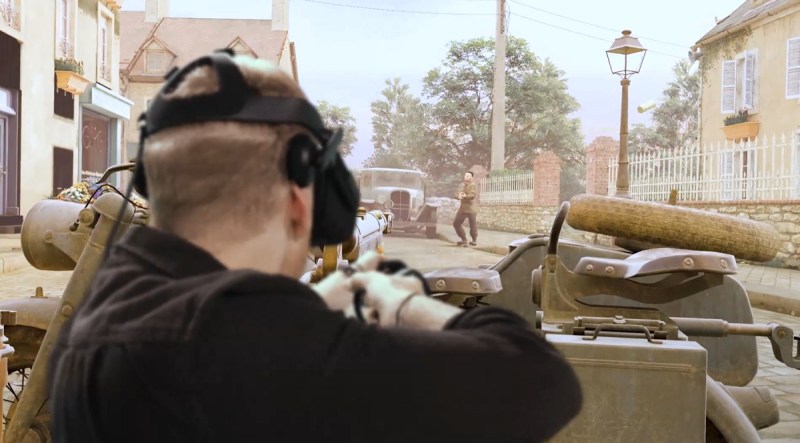
Above: Medal of Honor: Above and Beyond is coming to VR.
I’m looking forward to some really big virtual reality games next year, such as Respawn Entertainment’s Medal of Honor: Above and Beyond, Facebook Horizon, and Valve’s Half-Life: Alyx. These games have been years in the making, and they’re showing that triple-A developers believe in VR. But it will be hard for these games to find huge audiences, as VR still has a small customer base. Sony has the best results so far with the PlayStation VR, and Quest is having a strong debut, but it has plenty of detractors, like Microsoft. It’s going to be an uphill climb for VR to get consumer traction. I think VR will still survive, but it will be years before we see enough consumer interest. In the meantime, VR companies can survive by investing in the enterprise or making titles for VR arcades.
10) Augmented reality glasses will become more practical
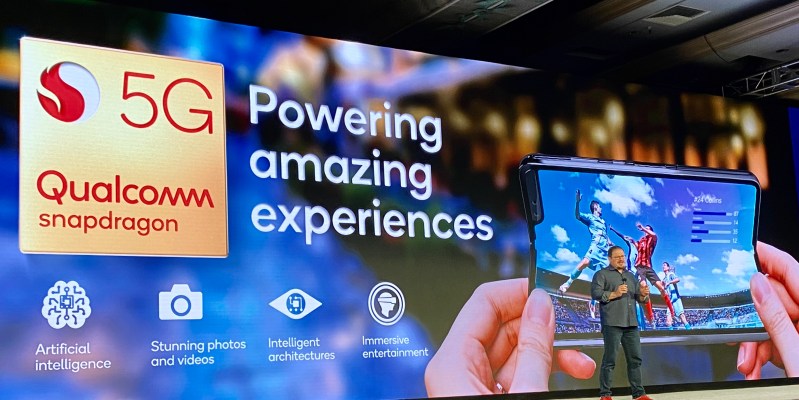
Above: At 2019’s Snapdragon Tech Summit, Qualcomm demonstrated that its chips can power amazing experiences — but real products delivering those experiences will depend substantially on the execution of its partners.
Qualcomm unveiled its latest tech for augmented reality glasses this fall, and that means AR’s biggest supporters will use those chips to come up with a new generation of AR devices. One of those companies that have already committed to it is Niantic, the maker of Pokémon Go.
We are not yet where we want to be with AR. Facebook has promised us that AR/VR glasses will eventually be as lightweight as ordinary glasses. We aren’t there yet, but with this new generation, we should get closer. Apple is reportedly working on something cool in AR, and this new generation of AR devices is likely to be cool, as Niantic knows more about this field than a lot of game companies. I’m hopeful that we’ll see signs of better AR technology in 2020, with games coming soon to exploit it.
11) Regulatory forces will gather momentum
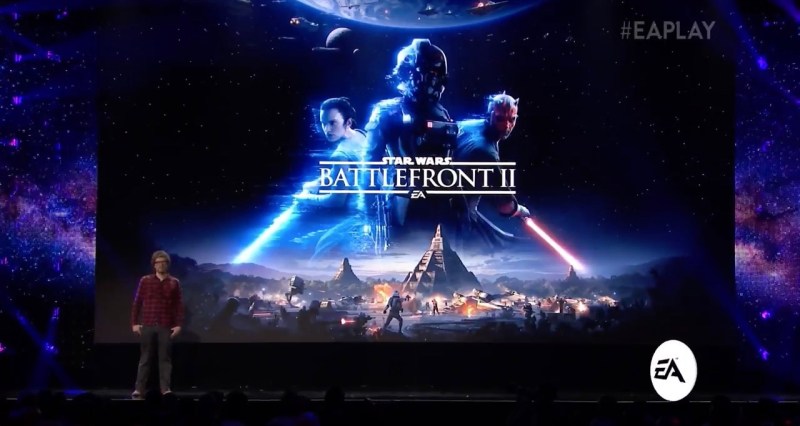
Above: Star Wars: Battlefront II has a loot box problem at launch.
I can foresee all sorts of regulatory troubles for games. The Federal Trade Commission could crack down on loot boxes and microtransactions for deceiving consumers. Regulators could conclude that loot boxes amount to illegal gambling. Or they could decide that games are addictive and should be controlled, with time limits such as those imposed by China for children. Addiction isn’t a thing to be messed with, and now that the World Health Organization has classified gaming addiction as a real condition, the door is open for regulators to take action in response to that. I don’t know how long it will take for worldwide restrictions to be imposed, but the game industry should move to get ahead of this problem, or it will face the consequences.
12) Subscription gaming will gather steam
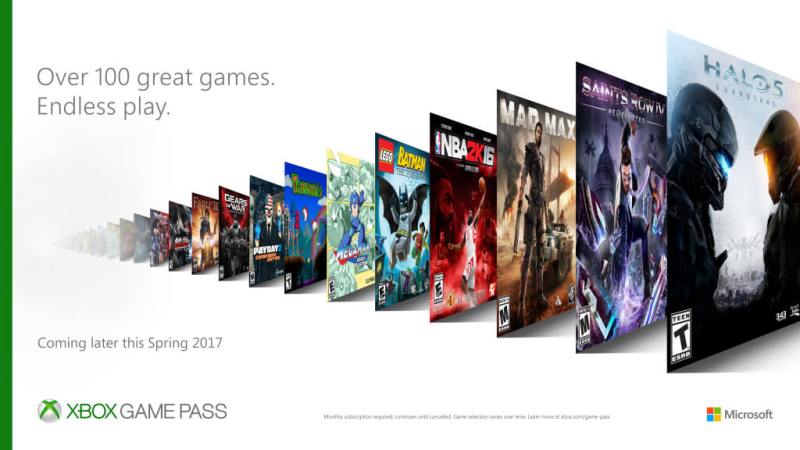
Above: Microsoft wants to hook you up with a massive library for your Xbox One.
Somebody has to come up with the “Netflix of games.” This phrase has helped many a startup raise money, and Microsoft is moving full-speed ahead with Xbox Game Pass, which is becoming an extraordinary value for gamers. Sony is also jumping on this bandwagon, as are companies such as Apple (with Apple Arcade) and Google (with Stadia). Consumers have adopted subscription models in so many other categories of entertainment, it seems like it will be a matter of time before gamers go for it. My money is on Microsoft in this particular battle.
13) Intellivision will be the wild card of 2020

Above: Intellivision Amico
Tommy Tallarico is dead serious about shipping the best game console of 2020. His Intellvision Amico will go up against other big consoles as far as timing goes, as the Intellivision retro video game console will ship on October 10, 2020, perhaps just before Sony and Microsoft ship their machines. But Tallarico is going after a very specific audience: the people who grew up playing with friends or family with video game systems where everybody could play together on the couch. He has convinced a lot of people to partner with his company, he promises some cool games, and he isn’t trying to do too much. Tallarico is targeting those who are nostalgic for non-violent, fun games that everyone can play. We don’t know how big this niche will be, but if Tallarico executes well, this retro revival could be a surprise hit.
My 2019 scorecard
1. The Hunger Games license will surface with 1,000-player battle royale

Above: Katniss in The Hunger Games
Letter grade: F
I figured out that Suzanne Collins, the author of The Hunger Games, is not a fan of violence in media, including video games. That’s pretty much going to stop any licensing of the books or movies for video game purposes. This tells me that it’s not always a good idea to be so precise about your predictions. Mavericks: Proving Grounds also bit the dust, so we don’t have 1,000-player battle royale games yet.
2. Cloud gaming slouches toward Bethlehem
Letter grade: A
Google launched its Stadia cloud gaming service in November. Blade also launched its Shadow cloud gaming service and raised another $33 million in October. Microsoft said it is testing as many as 50 games for its Project xCloud cloud gaming service. Amazon is also reportedly working on its service. The era of cloud gaming is here. Now we’ll see how much of an impact it makes.
3. China will resume its growth in games
Letter grade: A
The Chinese government stopped approving game launches in China during 2018, but on January 2, the government approved 80 titles and then lifted its foot off the brakes. That was a pretty quick time between prediction and the prediction coming true. A rarity for me.
4. Blockchain gaming startups will produce great ideas, but adoption depends on big companies
Letter grade: A
Blockchain and cryptocurrency startups produced a lot of bright ideas for improving video games during the year. But some of the most ambitious ideas are still waiting for backing from big companies. Robot Cache hasn’t launched its blockchain tech for an app store that is more efficient and allows developers to keep more of the proceeds. Forte cut a deal with Kongregate, and Animoca Brands embraced blockchain in a big way, but except for Ubisoft, the big companies are still holding back.
5. Esports will become a battle royale, with winners and losers
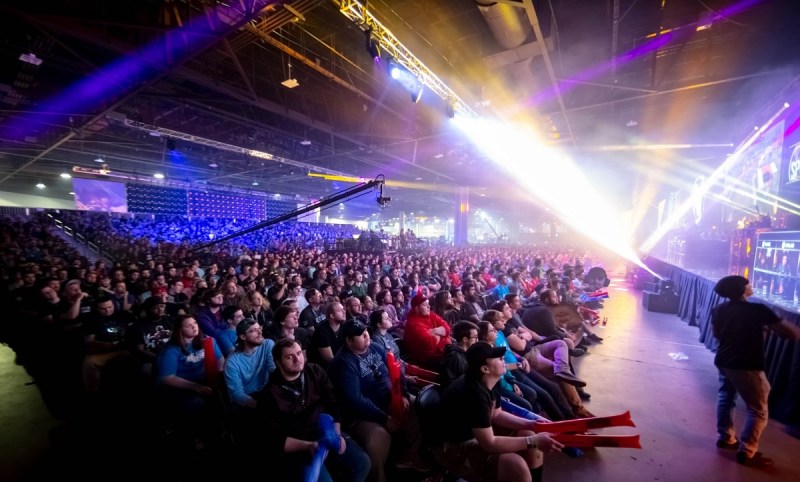
Above: Millennials love esports.
Letter grade: A
The battle royale took place among league owners, and operators, investors, and traditional sports owners all scrambled to get a piece of the pie. We didn’t see any big craters, but plenty of pundits are predicting some fallout from over-investment and too much esports hype. Meanwhile, brands like Lexus, Anheuser-Busch, and Louis Vuitton are moving into esports sponsorships. At the close of the year, EA and Respawn launched a new esports league for Apex Legends. Full speed ahead still, as revenues and viewers are still growing.
6. Gamers will think of new ways to play games and make money doing it.
Letter grade: A
I didn’t think that this Leisure Economy would move so fast. But during the year, even high schools began adopting esports in a big way. PlayVS raised $50 million for hits high school esports league, and it had competition from multiple rivals. So the number of people making a living from esports is widening. I still have high hopes that the “creator economy” jobs will employ many more people in the future. I’m up for a life of leisure.
7. The Metaverse will start to take shape
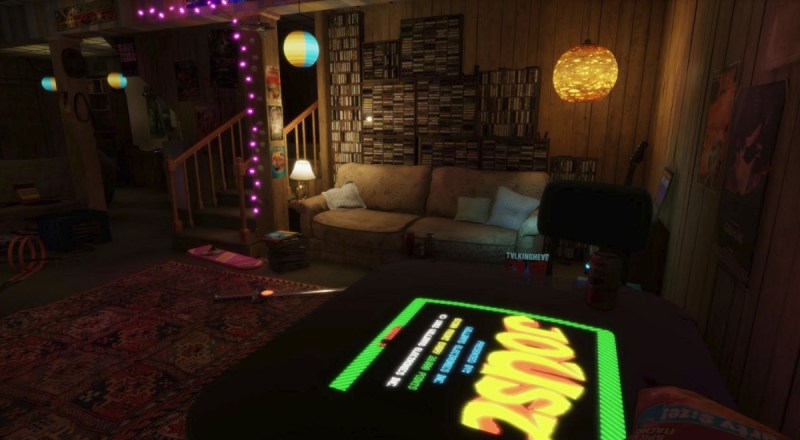
Above: Aech’s Basement for Ready Player One.
Letter grade: C
We didn’t see much material movement on this prediction during the year. Many companies are still espousing this idea, and maybe the HBO rendition of Snow Crash will inspire more people to move this further. Perhaps the most ambitious company is Japan’s Gumi, which is investing heavily in games, virtual reality, and blockchain to tie all the thread of the Metaverse, or nexus of connected virtual worlds, together. But it’s going to take time.
8. The lines will blur between games, esports, and gambling
Letter grade: B
The courts have cleared the way for betting on games of skill, and for other esports-related gambling. And companies like Unikrn and Skillz made progress during the year in launching spectator betting and skill-based betting on games. It’s not huge yet, but it is growing.
9. Regulators will catch up with gaming’s frontier and crackdown where needed
Letter grade: B
The FTC held hearings on loot boxes and microntransactions to explore whether regulation was necessary in the games business. These in-game rewards that players buy with real money are feared to cause addiction and gambling-like behavior. The crackdown hasn’t happened yet, but loot boxes continued to command a lot of negative vibes and press during the year.
10. E3 will hold together
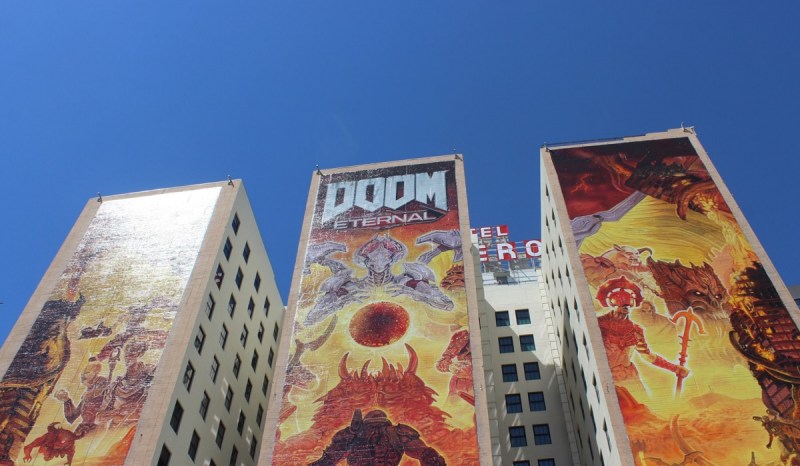
Above: E3 2019.
Letter grade: D
When Electronic Arts decided to leave the show floor of the Electronic Entertainment Expo (E3) trade show, some predicted doom for U.S. gaming’s largest event. Sony also decided to skip last year, and prominent show host Geoff Keighley, who has been active at E3 in the past, has begun investing more time in Europe’s Gamescom event. And media coverage appeared to dip 39% from 2017 to 2019. E3 didn’t do itself any favors by getting hacked and exposing the data of 2,000 journalists. We’ll see if the show recovers with the launch of new consoles from Sony and Microsoft, but there’s a lot of risk for E3 still.
11. Games will make their way to strange platforms
Letter grade: A
Drivetime turned out to get strong momentum for its voice-based games and it raised money during 2019. New platforms are emerging all the time, like the social games on Snapchat and audio games on Amazon Alexa. There’s no slowing of this trend.
12. Reboots continue to breathe life into old franchises
Letter grade: A
On both the hardware and the software front, reboots and remakes are going strong. We just finished the trilogy of rebooted games for Lara Croft, with 2018’s Shadow of the Tomb Raider, and the highly successful reboot of God of War. The next big one coming is Resident Evil 2. Red Dead Redemption 2 took the prequel route, and it made fans anticipate interesting twists in the storyline.
And on hardware, we may see some news about the Atari retro game console, the Atari VCS, and the new Intellivision console reboot coming from Tommy Tallarico. Fans love the gameplay that they know with proven franchises. And sometimes it’s not good to just keep on going with a franchise forever, grinding it down into ever-smaller audiences.
Reboots give developers a chance to re-imagine a familiar property from the ground up, create better graphics, and service fans who want a return to great gameplay without some crazy new tortured plot. But as the Tomb Raider reboot showed, a well-executed reboot can reignite an aging franchise.


